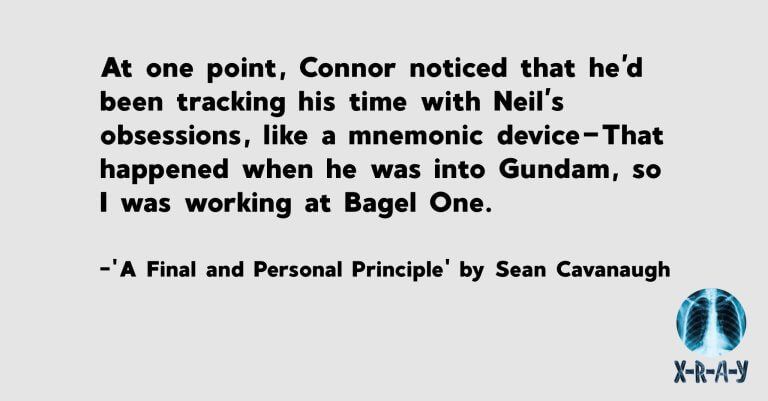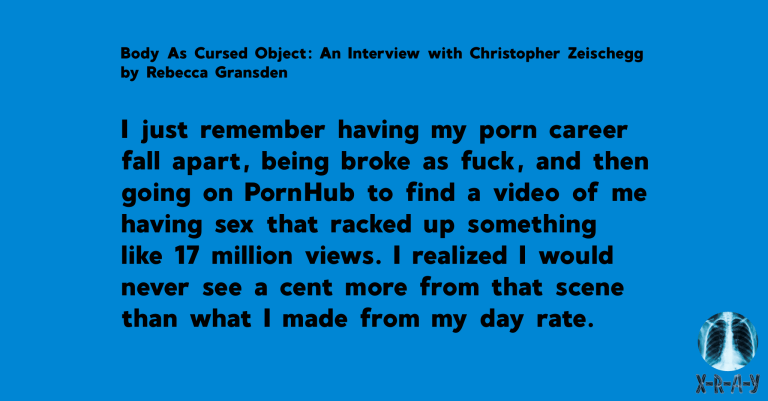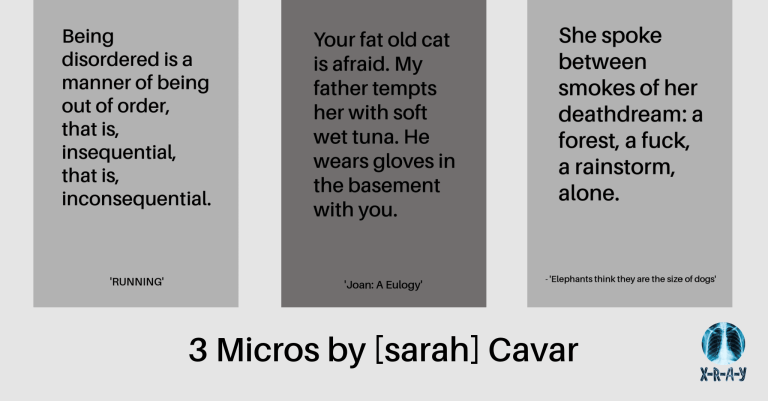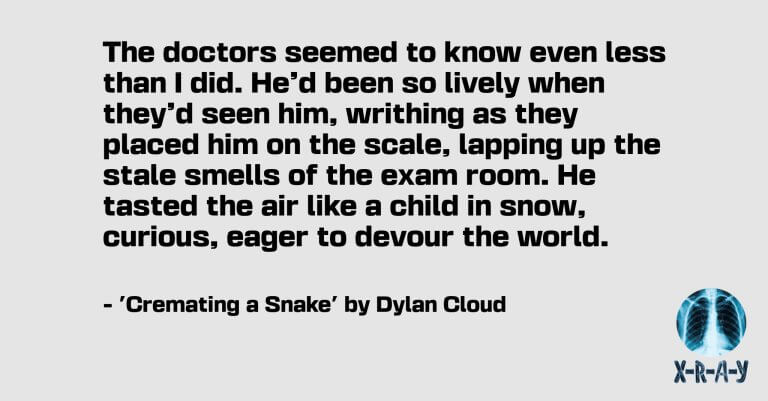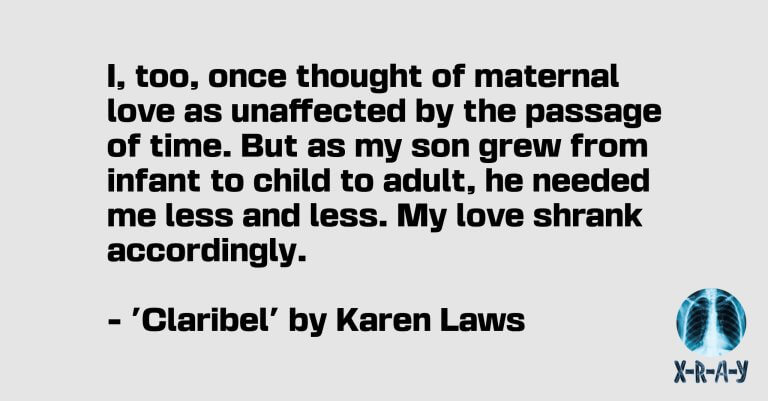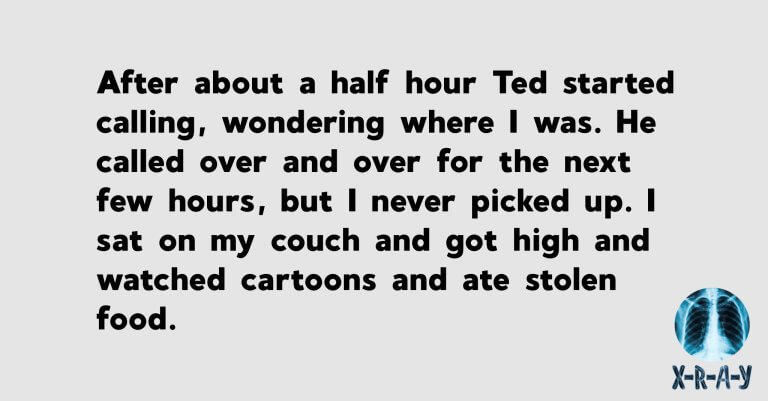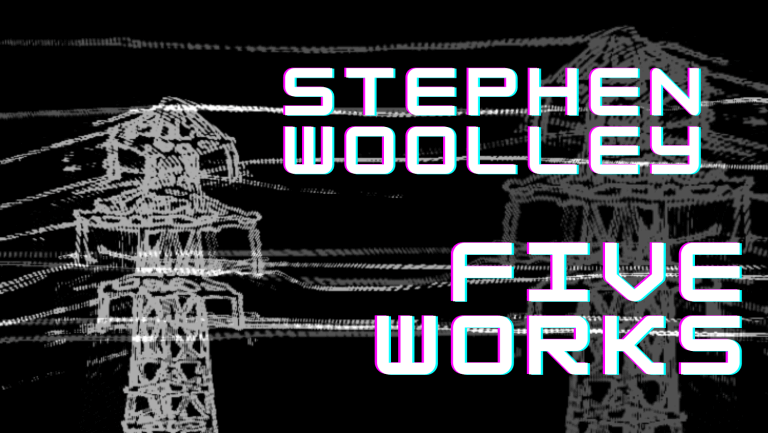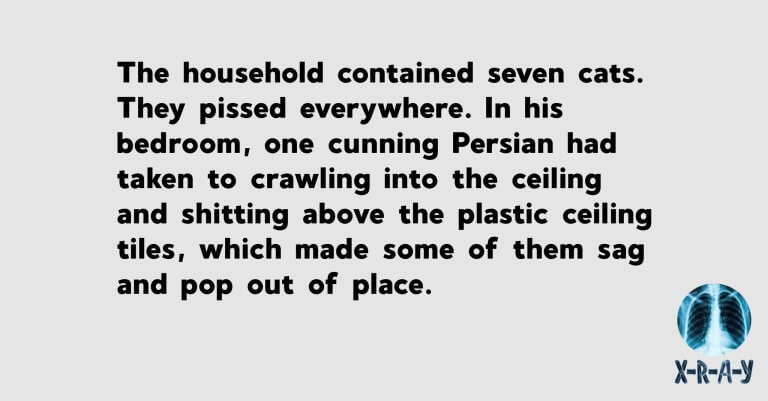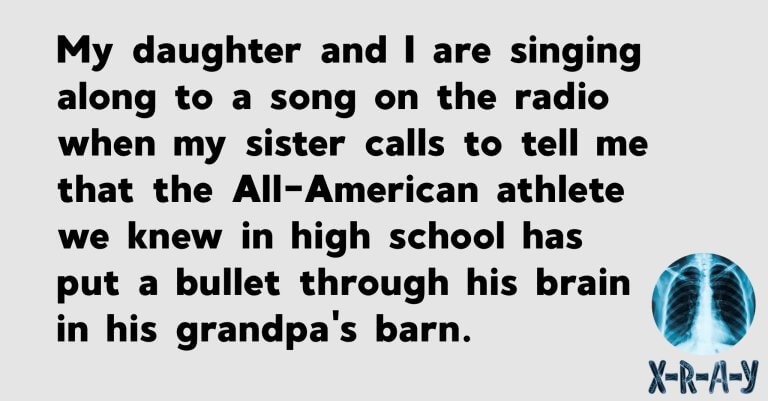June 6, 2024
Connor’s room had big windows and blinds with strings that touched the floor, and which were always drifting unevenly, a little to the left or to the right, halfway up or basically closed, but always open slightly because of an interceding object or a crease in the PVC, so the sunlight was partial and unfulfilled. There were a few old trophies on his dresser and a fishbowl, forever bubbling, with two statuettes and a little red beta. In front of the bed was a large TV, and to the side was a small leather couch where he’d sit with his friend Neil. Tonight, Neil brought Girl Scout cookies. He said they were selling them off of a table outside the Stop & Shop, that there was a Salvation Army guy, but he didn’t stand a chance. “Cookies,” he said. Then he laughed. Connor asked if he’d seen anything good lately, and he said, “Different Chinese movies.” He said I’ll show you later, then they got into the cookies, which they ate thoughtlessly and with little dialogue, and which they finished in a few minutes. Fuck, they said.Neil asked if they could step onto the balcony for a smoke, then they did. The snow made things look matted out and finished. Connor’s backyard, really his dad’s backyard, had a bunch of evergreens in a circle in one corner, and whenever it snowed, it looked like they were guarding something obscure. He never mentioned it, but he actually did trudge to the trees one winter, not even when he was that young, to lie in the middle and look up. It was generative, like resting on the stigma of a big white flower, and he decided then that something could enter his life and change him from the inside. He said he liked the snow in their town, and Neil said it snowed other places, too. After they finished, Neil washed his hands and Connor didn’t, and they sat on the couch and watched a movie that Neil had in mind, one he thought they’d both like.Neil picked the movie for the same reason he always did: because he had stronger opinions about movies and, though neither acknowledged it, because he had a forceful way with his friend, a tendency to assert himself that didn’t show up elsewhere in his life. At one point, Connor noticed that he’d been tracking his time with Neil’s obsessions, like a mnemonic device—That happened when he was into Gundam, so I was working at Bagel One. The phases lasted about two years and revolved around movies, games, books, shows, anything that he could consume at night then go on his phone and read the context, build taxonomies. Privately, Neil was acting in total earnest, driven by a zeal for the new and a desire for knowledge, deep and wide. Connor understood that, and tried his best to engage with his friend’s interests, even to the point of occasional revelation, but he didn’t like feeling coerced.Tonight’s movie, for instance, was a Taiwanese actioner from the 1960s, and Neil spent the runtime explaining the Republic of China and the significance of the tropes used, eventually settling into a low-volume prattle of actors’ names and their other famous roles. Connor talked too, making jokes about the costumes and references to other movies, and Neil would grunt in assent or bob his head left and right, indicating a contention. They ate snacks from downstairs and hit Connor’s dab pen, and for long stretches, they just enjoyed the movie. At one point something happened, and Connor said holy shit, and Neil said fuck, I know. Neil had been worried to see how the night would go and was surprised to be laughing as much as he was. He thought Connor seemed better than usual: he’d been very distant lately, and he’d never been good with his phone. It was stressful to know that if Connor was mad, he’d never say it—he’d just leave. After the movie, they ate ice cream in the kitchen, where they had to be quiet, and Neil asked if he’d applied for jobs or anything. Connor pulled the spoon out of his mouth and frowned, then made eye contact: He was moving. Neil asked where, and he said Saint Paul. “But we live in the South Shore.” Connor grabbed two glasses from the pantry and filled them with water. Neil asked why, and he said he met a girl online. Wasn’t that a bit rash? Connor didn’t think so. Neil pulled a chair out from the table and sat down, then traced his finger around his cup. He asked Connor if he had a job waiting for him, and he didn’t, but he was convinced he could find one because he had someone who believed in him. “Unbelievable,” said Neil. He’d been unemployed for five years, but he’d just go out there and find work. Did he realize how stupid that sounded? Connor said he’d apply to gas stations and coffee shops, that one benefit of underqualification is the ubiquity of bad options. “So that’s that?”“Come on,” said Connor.Neil told him not to call when his fish died, then walked out of his life forever. He didn’t think it would last that long; he knew he wouldn’t reach out, but he figured Connor would. Still, he was wrong about the fish, which he thought would die within the month, and which would actually live for two more years in Saint Paul. He started buying fish for Connor when they were twenty-three because he thought it would help him build responsibility, and eventually self-respect. The program was a disaster: they flushed whole schools over the years, from goldfish to clownfish and blue tang, purely because Connor couldn’t muster the discipline, and because he eventually switched to overfeeding, unable to moderate himself long enough to keep something alive. Whenever they died, though, he would FaceTime Neil during the flush, always really hurt, sometimes on the verge of tears. Once, he paused for a moment to ask why he couldn’t do it, if there was something wrong with him, if it was obvious to everyone else and they just wouldn’t say. The move to Saint Paul, disastrous though it would be, marked a milestone in his pet stewardship. Eventually, he would get a dog. After that night, they would exist in each other’s lives as a bad possibility. Neil would block Connor on social media to keep himself from stalking his accounts, which he did for the first few months, and which gave him a feverish thrill. Connor would have regular nightmares where Neil reached out to him, a call he would have to answer, and which would fundamentally upset his life. After he left, he saw what Neil did to him: he told him what he was capable of (more than this, man), what was beyond his means (college, most women), what to be proud of (he could draw), and where to point his shame. It felt good to be who his friend thought he was, even if that meant affirming a cruel assumption. One night, after a week of abstinence, he caved and bought cigarettes. He called his friend, truly despondent, and was treated to warm, homely love. “I get it, man. It’s fucking hard.” Smoking on his deck that night, he wondered how it would have gone if he’d quit for real. No phone call, no affirmation. Neil would still smoke himself, he’d just be weirder about it.And Neil was already weird about it. It was the week after graduation, the week he moved back home, that he sniped at Connor most directly. They were at a townie bar, The Spout, that was a little further out from the rest, a little shittier, and much less likely to spawn unwanted high school acquaintances. Connor started going there when his dad stopped inviting him to the Elks, and since then, he’d gotten kind of good at darts. That night, he beat his friend handily and they ducked out to smoke. Neil grimaced, then asked if he felt bad for getting him started. Connor paused; it hadn’t crossed his mind. He’d never pressured him to do anything, and they were teenagers when they picked up the habit. Still, Connor gave him access. Left to his own devices, Neil may have lost interest before he reached eighteen, and his addiction might not have followed him, as it would, to the end of his life. Connor felt himself tearing into doubles, triples, incompatible co-parents of the truth. He felt staticky and nauseous, and he didn’t know it yet, but he felt resentment, too.“Sorry man,” he said, “It’s one of those things.” Really, Connor thought some vices waited for people. They could dodge them for decades, maybe forever, but they knew who they were, and they would always be convenient. It seemed less likely that he got Neil into cigarettes or Neil got him into weed. The causal tellings got things backwards: their mistakes were always ahead of them, tied to their waists, pulling them into each other’s lives. If they got the impression, which they shared by the end, that they were engaged in a tug-of-war, then they were correct, but they were wrong about the sides: they were pulling together, and they were losing. Neil would start reading history in a decade, and would be comforted by the way it could ignore the will. In a movie or a novel, disaster is an incitement to life, but in history, it doesn’t have to be anything. Resentments go untested, addictions go unbeaten, the rare big bads leave craters that don’t fill in. The night of the confrontation, Connor bought him a beer and they made up. Connor didn’t get his fatalism from Neil, though. He got it from his dad, and it was his dad who kept it around. The woman who brought him to Saint Paul lost interest after two months, then he was alone except for his dad, who called weekly. When he heard about the girl, he said, “That’s about right.” When he heard about the roaches or the heatless winter nights: Fucking management, fucking assholes. Connor didn’t have much to report, though, so he mostly listened. His aunts were always getting sick, his uncles gambling and buying new cars. Grandma was mad because someone made a comment about her dog, but they couldn’t apologize because she wouldn’t say who it was. When his mother died, she left his father a second, messier family, and if he abused them to his son, it belied a real gratitude. He had a drive to observe others, a greed for behavior and judgment, judgment and acceptance. She wouldn’t need the surgery if she went to the doctor in the first place. But that’s your grandma. He loved them the way he could love anyone, Connor excluded: a mocking, back-slapping kind of love that delighted in failure because it affirmed his suspicions. With his son, though, he had all of the tolerance and none of the judgment. He loved him for the obvious reasons.It was for those reasons that, when Neil left for college, Connor’s dad embarked on a project. His son, once a laid-back and observant child, then a skilled appreciator of life, wasn’t even gaming anymore. Instead, he was on his phone or just lying there, vaping. One day, in a tone that never sounded convincing coming from him, he enlisted his help: You don’t have a choice. He was building a pizza oven in the backyard, and because of a recent surgery, he needed someone to handle the bricks. He would build the wood frame and machine the half-blocks, but Connor would deal with the adhesive, the laying, the leveling. At first, Connor was happy to have a to-do. He was bored, deep-tissue bored, even before his friend left. After, he was just material, an unmixed pile that would stick around until something better came along. (Later, pushed to failure in a Minneapolis pizza kitchen, he would remember his weeks in bed, the way he spread outward while time drew to a point.) He took to laying bricks with a newfound conviction, something real and anxious that had been missing from his life.Then it got hard. September is a summer month in Massachusetts, and he’d always stayed indoors if he could help it. “That’s a sunburn,” his dad said, “It’s a new look on you.” Because the project started with pavers, which were heavier than bricks, and which his dad dumped on the front lawn, his first task was a series of back-tearing sprints that muffled his ambition and brought home the possibility of actual, physical failure. At that point, while his dad cut some of the stones, he laid them in a small, open square, staggering their placement to ensure integrity and correcting their alignment with a wooden dowel. Between the stones, he spread landscape adhesive in ugly swirls, and after a few layers, he began to enjoy the way the bottle gripped his hand, the resistance it put up, and its give. That evening, when his dad checked his angles and he placed the cornerstone, he felt exhausted, but refreshingly so, more like something spent than gone dry. He could probably do the same thing tomorrow.His dad joked: Good job with the warm-up. Soon, they both had beers, and they were sitting on the patio, stifled by the cooling air. “Listen,” said his dad. Years ago, he had a friend at the firm: he did M&A, and his buddy did wealth management. They would lunch together and talk about the people they hated, the handies and sleights that made up their world, the soft basis of material life. Sometimes, he told his friend he’d had enough. Don’t you say it, his friend would tell him, don’t you leave me; so he didn’t. Connor’s dad stayed on long after there was anywhere to go, enduring rubbery, overcooked performance reviews and whole-team emails directed right at him. He managed the hunger of bosses that were five years, ten years, twenty younger than himself, and watched Netflix originals so he’d pick up on their references. At one point, they brought in a consultancy, and he realized that, if he had to defend his position, he would decline to comment. He wasn’t laid off, just moved around. Then his friend left for China.“Oh my God, I could have killed him.” But he didn’t. The day he got the news, his friend swaggered to his desk, rapped the edge with one hand, then led him to the elevator and down the street to ‘their’ café. The hostess told them to sit anywhere, and they laughed because they had a table. Their presence had become a joke, the way “how’s it going” becomes a joke after months, or how anything becomes a joke after years. “Nothing good in Worcester?” His friend shook his head: The offer was perfect. As he was now, he couldn’t imagine a better life than he had in Massachusetts. His wife was an angel, his kids were very happy, and his friendship with Connor’s dad felt like a final and personal principle. He wouldn’t always be this way, though, not even in a few months. Obviously, his surroundings would be different, but he saw something other than that. “Arnold,” he said, “The scale.” He set his jaw and rocked his head back and forth. It had been over for a while, Connor’s father knew that, but he would think of that moment for years to come. The night they stopped talking, Neil showed Connor Dragon Inn, a martial arts epic about a Ming dynasty eunuch who murders his enemies’ children. The eunuch trope struck him as odd, and with further viewing became “funny,” a reminder that he was watching a movie from another country. A decade later, when he started reading again, he read a little about China, then bought a book about eunuchs, which he read over a few days, and which would inform how he thought about people in time. The practice of castration was litigated throughout the Ming dynasty, but the station of the eunuch stuck around, and even exhibited a capacity for expansion. Even as the state enforced bans on non-official castrations, people cut themselves or their children, convinced it was the only option for advancement, or the best one available. At one point, twenty thousand self-made eunuchs mobbed the capital demanding work, and when they were rejected, enough killed themselves that the emperors started hiring the remainder. Neil liked that story. He liked how something built to defeat itself could change face and propagate, expand for generations. He liked that a practice, once a stand-in for death, lived for millennia, and he liked that it was dead now, ready to be studied. Neil felt that comfort when he thought about Connor, but especially when he thought about one particular memory, one of their really fine days together. The summer before his junior year, one of the few times he’d ever been grounded, Connor broke him out and they went driving in the mountains. It was late afternoon by the time they got there, so they drove through huge sloping shadows and looked at the valleys and the brightness above, and they smoked cigarettes out the windows and played shitty music very loud. He told Connor almost the entire plot of Evangelion, and he actually seemed to blow his mind. “So is she like…” She’s his mom, dude. At one point, they saw a hawk, and they both said, “Fuck, a hawk,” which they meant in earnest, but which they repeated as a joke, alternating their tone and accent to make the other laugh. The river below looked pleasant and blue, but there was no way to get down, so they just looked without mentioning it and drove along.Eventually, they pulled over to a rec area with some picnic tables and a good view. Connor grabbed a frisbee from his back seat, and they played catch for a while, lobbing big tosses and “weird ones,” diving for catches and twirling the disc on one finger. Sometimes, Connor would throw it straight and Neil would clap his hands in a great whooshing arc, slamming the plastic between his palms with his legs planted a little further than shoulder-width apart. Sometimes, Neil would throw it straight into the sky and Connor would shout, “DEFCON KICK,” and kick it out of the air. It was rare that Connor felt truly athletic, but he did here, jogging to catch the disc and throwing it with style. He felt like he was better at things when Neil was around, like there were areas he could learn from him, and opportunities to shine. They tossed the frisbee until it turned dusky and they started getting eaten. Connor shook his legs off and yawned, then grabbed their camp chairs and started to pack the car.“No but watch this,” said Neil, peeling off to climb a nearby oak. He hugged the trunk at a fork near the ground, then hefted himself up, scrambling for footholds while he swung into a straddle, then a crouch, then he chose the thickest branch and put his belly on the leaves. “Cigarettes,” he said, and Connor tossed them. He kicked his legs and took in the sky, a white pane splotched with color, nighttime settled at the bottom like chocolate syrup. There were birds up there, and clouds, and he could watch it all spill over mountains and into the valley, the water, the flood of life invisible from above. He pictured himself soaring down, cheeks puffed with wind, interminably set on the original source. He blew smoke down at Connor, and it all came back at his face. “Fucking asshole,” said Connor, but Neil just laughed and turned to lean back. Then he felt a crack in the wood and fell twenty feet to the ground. Connor said fuck, fuck, and put a hand behind Neil’s head, the other on his chest, and tried to help him breathe. He was croaking, trying to tell him something, something that wouldn’t come out: I just, I just, I just. Connor grabbed water from the car, and when he handed it over, Neil put an arm around him and smiled. He was grateful and wincing, and there was blood between his legs, where the branch was. Later, when he was able to talk, he didn’t want to say much. They drove back, and Neil’s parents gave them hell; they didn’t expect this from him, a family is built on trust, if he thought he was grounded before, he had another thing coming. It was only the next day, when Connor was cleaning his car, that he saw the stain on his seat and wondered if something more serious had happened.
Read More » 